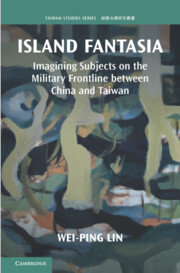Island Fantasia
The Matsu archipelago between China and Taiwan, for long an isolated outpost off southeast China, was suddenly transformed into a military frontline in 1949 by the Cold War and the Communist–Nationalist conflict. The army occupied the islands, commencing more than 40 long years of military rule. With the lifting of martial law in 1992, the people were confronted with the question of how to move forward. This in-depth ethnography and social history of the islands focuses on how individual citizens redefined themselves and reimagined their society. Drawing on long-term fieldwork, Wei-Ping Lin shows how islanders used both traditional and new media to cope with the conflicts and trauma of harsh military rule. She discusses the formation of new social imaginaries through the appearance of ‘imagining subjects’, interrogating their subjectification processes and varied uses of mediating technologies as they seek to answer existential questions.
Wei-Ping Lin is Professor of Anthropology at National Taiwan University. She has previously held affiliations at the Harvard-Yenching Institute and the Fairbank Center for Chinese Studies at Harvard University. She is the author of Materializing Magic Power: Chinese Popular Religion in Villages and Cities (2015, Harvard University Asia Center) which won the Academia Sinica Scholarly Monograph Award in the Humanities and Social Sciences. She edited Mediating Religion: Music, Image, Object, and New Media (2018, National Taiwan University Press).

